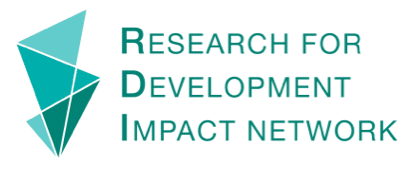The COVID-19 pandemic has presented many challenges to conducting M&E.
- Program activities have been delayed, adapted or ceased outright so that organizations are not able to conduct their M&E as planned.
- International travel restrictions as well as local lockdowns present challenges to conducting primary research, including fewer field visits, and in-person data gathering.
- M&E activities have also had to address social distancing guidelines and the availability of personal protective equipment to ensure the safety of staff and participants.
- These changes have impacted opportunities to strengthen connections with local partners, conduct screenings and fulfill duty of care.
- The COVID-19 pandemic has also further exposed flaws in how M&E has been conducted. Namely, that it can be extractive, irrelevant, insufficient, burdensome, too slow, and focused on compliance rather than improvement.
However, development organizations are adapting to these challenges and using the crisis as an opportunity to rethink how M&E is conducted.
- The Covid-19 pandemic has exposed that interventions and M&E are conducted in uncertain and unpredictable scenarios. To address this complexity, M&E plans need to be based on theories of change that are non-linear and address emergent change.
- Theory-based approaches are being embraced, in recognition that tools and information that were previously relied upon are not always available.
- At the same time, information is being gathered in different ways from a wider range of sources and brought together using mixed methods approaches. NGOs are engaging in conversations with partners, gathering information from social media posts, and supporting community journalism.
- Organisations are using technology to provide alternatives to in-person data gathering. Phone and web-surveys, and processes and tools to manage them effectively have been taken up where appropriate, while bearing in mind issues of equity and power.
- NGOs are turning to locally-led M&E approaches. This includes engaging local consultants, strengthening partner organizations, and using participatory methodologies.
- More timely evaluations are being adopted with methodologies drawn from humanitarian responses and research conducted in conflict and disaster contexts.
- Information is being gathered by synthesizing existing research, although forming conclusions in this way is challenging because of shortcomings in previous research.
- There is also recognition that capacity and the confidence to try new methods needs to be fostered before they are needed. Development practitioners are sharing their M&E experiences through webinars, resources and tools to foster innovation and reflection.
Watch full videos:
- M&E approaches during COVID-19 (5 mins, blog)
- Monitoring, Evaluation and Learning during Covid-19: Our biggest challenges (3 mins, video)
- Monitoring, Evaluation and Learning during Covid-19: Tools and approaches (5 mins, video)
- Monitoring, Evaluation and Learning during Covid-19: Opportunities to learn (4 mins, video)
Rethinking the model of international MEL
- Perspectives from Patricia Rogers, CEO, Better Evaluation (12 mins, video)
- Perspectives from Delvin Varghese, Research Fellow, Department of Human-Centred Computing, Monash University (11 mins, video)
- Perspectives from Veronica Bell, Head of International Technical Services, Australian Red Cross (15 mins, video)
- Perspectives from Audra Blanchfield, Safe People and Data Initiative, SurveyCTO (17 mins)



